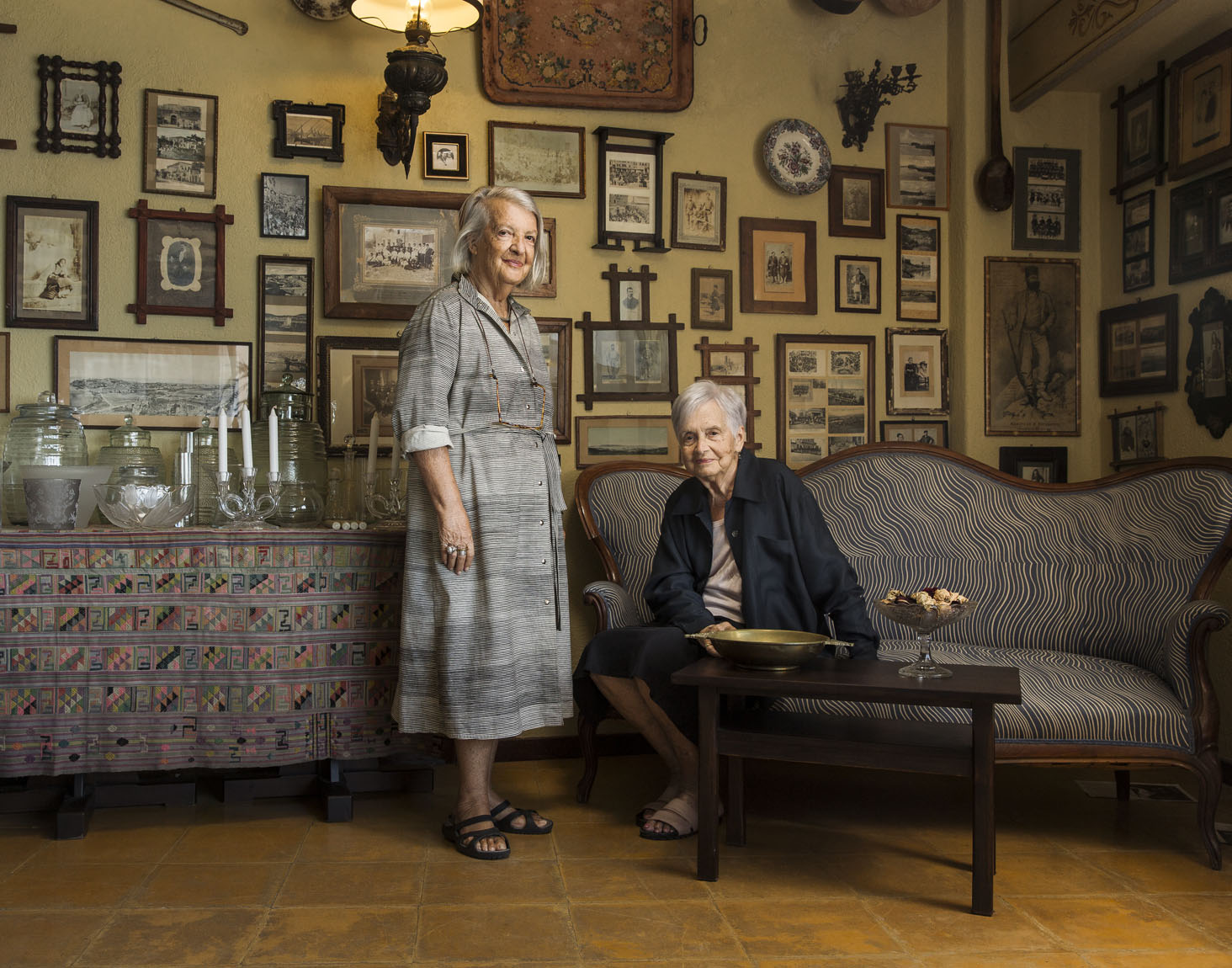My name is Ioanna, and I was born on July 8, 1933 in Chania, Greece. My older sister Rena was born on September 8, 1926. We sisters had a wonderful childhood. Our parents were loving, giving people who always did the best they could to provide for us. We had a big house and a beautiful garden.
Our life was carefree until the war started. The Germans were tyrants who were rapidly invading Europe. It was pretty clear that Crete was in line to be invaded by the Germans, especially after they occupied mainland Greece. At that time, our family leased our house to the British consulate. The British were here to protect us, as well as a lot of soldiers from New Zealand and Australia. Still, we all felt very uneasy about the possibility of war.
In May 1941, my father took us to a village north of Chania, trying to find a safer place to live. Soon the German invasion began. There was heavy fighting and the British soldiers fought for our island like it was their own. Still, the Germans won and Crete was under occupation. We remember the first day of the battle. We were playing in the yard when out of nowhere a plane appeared right over our heads. We saw a German pilot pointing his gun at us. Our mom ran out of the house and dragged us inside. That plane was flying so low we still can remember the expression on the pilot's face.
Later, when we returned to Chania it was already governed by the German administration. One day my mother walked me through our neighborhood. I saw our home and ran to go inside, but saw a strange man on the porch. I was very confused. My mother quickly grabbed me and told me it was no longer our house.
The Nazi commanders were living there now. Thinking that it was British property, they took it over and made it their residence. We were afraid to say a word, so of course my family didn't even try to tell them that it was our house. We moved to our aunt's house and stayed there.
Thus began the terrible, terrible times. Our childhood innocence was stolen by this worldwide conflict I had no understanding of. Germans would patrol through the town, banging on doors and screaming. My aunt had covered all of her windows with dark materials and paint so they couldn't see inside. Our parents would hold us tight during these contentious moments, protecting us with their very lives. My family had already lost their home, the last thing we needed was to lose each other, too.
The family had a rice factory that the Germans pillaged, stealing all the food for themselves. They even had the audacity to barge into my aunt's home and taunt us, saying, "The war isn't over, we'll be back one day." And giving my parents a key to their own factory.
I had a friend in a Jewish family a couple of homes over, and I remember one morning my father telling me the Nazis had taken them for prosecution. I never saw them again.
It was a never-ending terror until the British Army came back into our town in 1945. We were relieved that the Nazi threat was being neutralized. The battle over Crete began again. Only now, our liberators were trying to kick our occupants out. And they eventually succeeded.
The Nazis occupied one part of town, and the British had another. We didn't hear many gunfights, but I vividly remember a British soldier banging on our door one day. Rena opened the door, and he was huge. He told us there were many Nazis chasing him, and he just needed a glass of water. My family happily gave him something to drink.
Once the British Army kicked the Germans out, the war was finally over! We were liberated, and things could go somewhat back to normal. On their way out of town, the Germans burned everything they could. I can recall seeing clouds of smoke billowing off in the distance.
We returned to our family house in 1947. It wasn't in very good shape at all. The young soldiers hadn't been very respectful of our home. It was dirty and had minor structural damage. Both forces left behind things that we decided to keep and store in the basement as a mural. The British left a "British Consulate" sign, and the Germans left a drum. I guess there wasn't much time to play songs once the British were coming.
We later turned the home into a hotel. One time, a German guy visited Chania and stayed with us. Once I saw him walking around the hotel and checking everything out, looking at things and inspecting door knobs, windows, frames, etc. I was curious as to why he was so interested in the details of our place. So he turned to me and said that he had stayed here during the war. I asked him why he hadn't told me before, and he said he wasn't sure at first. Had we known, I'm not sure if we would've let him stay. The Germans did a number on our town.
After the liberation, we kept in touch with the British soldiers who we remembered. We got their names, and every time the town had an anniversary celebration, they were free to stay with us as our personal guests. We greatly appreciated them for their work in liberating us from the German rule.
These days we still run our hotel. Our parents have passed on, but their memory lives on through us and our historical hotel.
